1960
1960
At the end of hardship comes happiness.
고생 끝에 낙이 온다.
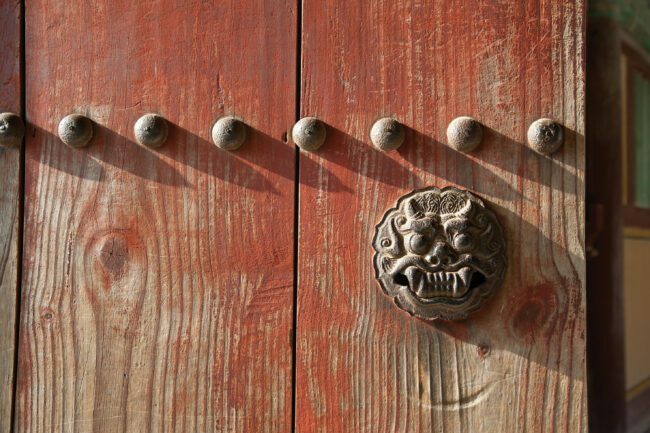


At the end of hardship comes happiness.
고생 끝에 낙이 온다.



Dr Yang Hi Choe-Wall is a Korean-Australian academic, writer and researcher, and was the first person to be appointed to teach Korean at The Australian National University.
Born in Seoul in 1932, Dr Choe-Wall grew up in colonial Korea, where Japanese was the language of instruction at school. Following her undergraduate studies in English language and literature, she went on to teach English language at Hongik University.
Dr Choe-Wall moved to Australia in 1965 with her two children to take up an appointment with The Australian National University as librarian of the university’s Japanese collection. She went on to study for a Master of Arts degree in Asian Studies at ANU, which she was awarded in 1974. Her thesis, Hanjung-nok: Memoirs of a Yi Dynasty Court Lady, was published in 1985 as Memoirs of a Korean Queen. Nine years later she was awarded a PhD in Asian Studies for her thesis on the life and work of Hŏ Nansŏrhŏn, a late 16th century Korean poet. This was published in 2003 as Vision of a Phoenix, now in its 4th edition.
최양희 박사는 한국계 호주 학자이자 작가, 연구자로 호주국립대학교(Australian National University)에서 한국학을 최초로 가르친 장본인이다.
1932년 서울 출생인 최 박사는 일제 치하 한국에서 자라 학교에서 일본어로 수업을 들었던 세대다. 대학에서 영어영문학을 전공한 후 홍익대학교에서 영어학과 교수로 일했다.
1965년에 두 자녀와 함께 호주로 건너가 호주국립대학교 도서관의 일본어 장서를 담당하는 사서로 일했다. 그 후 동 대학에서 아시아학 석사학위를 1974년에 취득했다. 석사 논문 ‘한중록: 이조시대 궁녀의 회고록(역자 주: 역자가 번역한 제목으로, 공식 논문 제목은 아님, 원제: Hanjung-nok: Memoirs of a Yi Dynasty Court Lady)’은 1985년 ‘조선왕후의 회고록(역자 주: 역자가 번역한 제목으로, 공식 출판된 국문본은 없음, 원제: Memoirs of a Korean Queen)’이라는 제목의 책으로 출간되었다. 9년 후, 16세기 말 조선 시인 ‘허난설헌’의 인생과 작품에 대한 연구로 동 대학 아시아학 박사학위를 취득했다. 이는 2003년 ‘Vision of a Phoenix(불사조가 사는 신선의 나라)’로 영역되어 출판되었는데 현재까지 개정4판이 출판되었다.
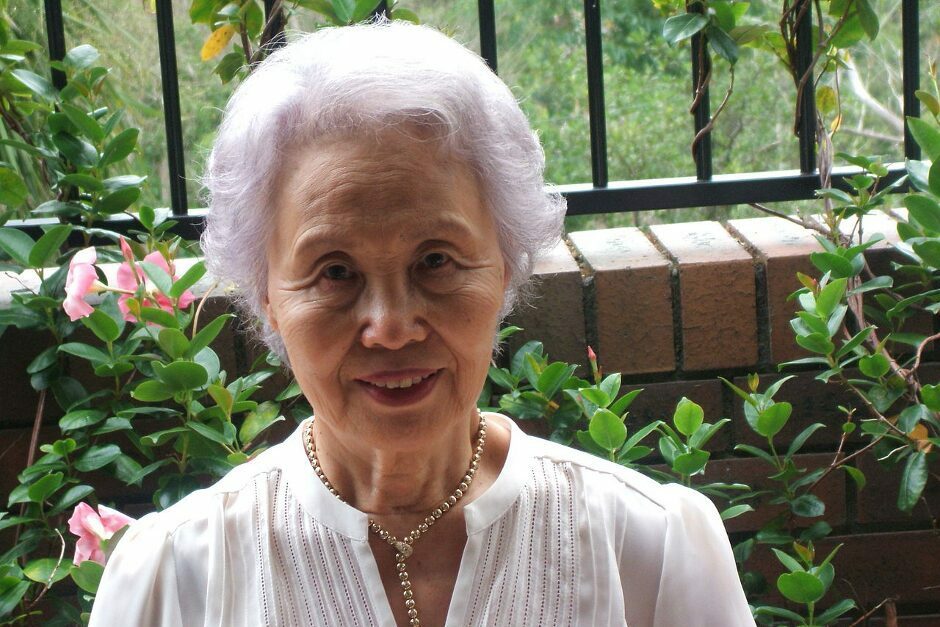
In 1984, Dr Choe-Wall was appointed as a lecturer in Korean at ANU, the first-ever appointment of its kind. She was later made an Associate Professor in the Division of Pacific and Asian History at ANU before retiring from teaching in 1996, but she continued to work for the following three years on The Encyclopaedia of Korea as Project Director and Chief Compiler.
Dr Choe-Wall’s main research interest is the Korean literature of Chosŏn, the last dynastic kingdom of Korea, which lasted for approximately five centuries until 1910. She has published extensively on this subject and has presented at international conferences around the world. In 2005 she received the Korean Literature Translation Award for Vision of a Phoenix, and her work The Jehol Diary, published in 2010, earned her the 2013 Daesan Literary Award.
1984년 호주국립대 최초의 한국학 강사로 임명되었고 이후 태평양아시아 역사학과 부교수로 임명되었으며 1996년에 은퇴하기 전까지 교편을 잡았다. 은퇴 후 3년 동안 ‘한국민족문화대백과사전(The Encyclopaedia of Korea)’ 프로젝트 책임자이자 수석 편찬자로 일했다.
최 박사의 주 연구 분야는 1910년 막을 내리기 전까지 500년간 유지되었던 한국의 마지막 왕조인 조선왕조이다. 이와 관련하여 방대한 책과 논문을 출판했으며 전 세계 다양한 국제 컨퍼런스에서 발제했다. 2005년 ‘불사조가 사는 신선의 나라’로 한국문학번역상을 수상했고 2010년 출판된 ‘열하일기’로 2013년 대산문학상을 수상했다.
In 1984 Dr Choe-Wall was appointed as a lecturer in Korean at ANU, the first-ever appointment of its kind.
최양희 박사는 1984년 호주국립대학교 최초의 한국학 강사로 임명되었다.
Novelist and playwright Don’o Kim is widely regarded as having made a significant impact on modern Australian literature. Writing in English at a level surpassing that of most native English speakers, his novels and plays focus on issues of race, identity, Korea and Australia. His work has been described as being characterised by integrity, innocence and authenticity.
Born in Pyongyang in 1938, Don’o Kim moved to Seoul at the age of 12, just before the outbreak of the Korean War, and by his early twenties he already had work published and performed in English. He travelled extensively around China, Russia, Vietnam and Japan before arriving in Australia in 1961 to take up an Australian Government scholarship under the Colombo Plan. He studied linguistics and English literature at Sydney University and the University New South Wales, focusing on contemporary drama, and after working as a teacher and librarian in Sydney, he settled in Patonga on the NSW Central Coast.
소설가이자 극작가인 돈오 김(한국 이름: 김동호)은 현대 호주 문학에 지대한 영향을 끼쳤다. 영어를 모국어로 하는 웬만한 사람보다 뛰어난 영어 실력을 지닌 그의 작품은 주로 인종, 정체성, 한국과 호주를 주제로 한다. 그의 작품은 완결성, 순수성, 독창성으로 잘 알려져 있다.
1938년 평양 태생으로 한국전쟁 발발 직전 12살의 나이에 월남한 그는 20대 초반에 이미 영어로 된 작품을 출간했다. 중국, 러시아, 베트남, 일본을 여행하고 1961년 호주 정부의 콜롬보플랜(Colombo Plan) 장학생으로 호주에서 유학했다. 시드니대학교(Sydney University)와 뉴사우스웨일즈대학교(University of New South Wales)에서 언어학과 영문학을 전공하며 현대 연극에 빠졌던 그는 이후 시드니에서 강의와 사서로 일하다 뉴사우스웨일즈 센트럴코스트에 위치한 파통가에 정착했다.
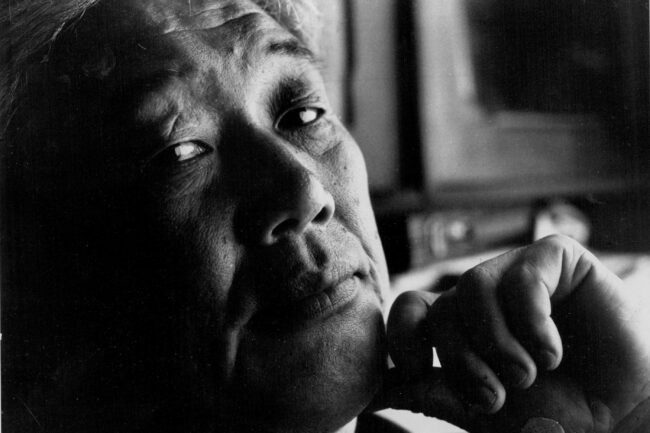
Don’o Kim’s first novel, My name is Tian, published in 1969, depicts the Vietnamese War through the eyes of a rural Vietnamese boy. The novel won the Australian Commonwealth Prize for Literature and was perhaps the spark that led to him receiving multiple grants from the Australian Government to continue his work. In 1979, My name is Tian was adapted into a poignant and haunting musical piece for soprano and chamber ensemble by the Australian composer, Anne Boyd.
Don’o Kim’s second novel, Password, published in 1975, is set in a fictional country in Central Asia and depicts conspiracy and rivalry in international politics. The Chinaman, his third novel, published in 1984, received international attention and is seen as a seminal work in Asian-Australian literature. Set in Queensland, the novel captures the experience of early Australian conflict with East Asian immigrants and ongoing racism in Australia. It was selected as a literature textbook by the University of Sydney.
Don’o Kim passed away in 2013.
Thanks to Neil Buckland for original text.
1969년 출간한 첫 소설 ‘내 이름은 티안(원제: My name is Tian)’은 베트남의 한 시골 소년의 눈을 통해 베트남전쟁을 그리고 있다. 이 소설로 그는 호주연방문학상(Australian Commonwealth Prize for Literature)을 수상하고 그 후 호주 정부로부터 많은 지원금을 받게 되었다. 1979년 이 소설은 호주 작곡가인 앤 보이드(Anne Boyd)에 의해 소프라노와 실내 앙상블로 구성된 슬프고도 강렬한 뮤지컬로 제작되기도 했다.
1975년에 출간된 그의 두 번째 소설인 ‘암호(원제: Password)’는 중앙아시아에 위치한 가상의 한 나라를 배경으로 국제정세 속 음모와 경쟁을 다룬다. 1984년 출간되어 국제 문단에서도 큰 관심을 받은 세 번째 소설 ‘차이나맨(원제: The Chinaman)’은 호주 내 아시아 문학에 한 획을 그은 작품으로 인정받는다. 퀸즐랜드를 배경으로 한 이 소설은 동아시아 국가 출신 이민자들이 초기 호주 사회에서 겪은 어려움과 호주의 지속되는 인종차별을 다루고 있으며, 시드니대학교 문학 교재로 선정되었다.
돈오 김 작가는 2013년 타계했다.
글을 제공해 주신 닐 버클랜드(Neil Buckland) 님께 감사드립니다.
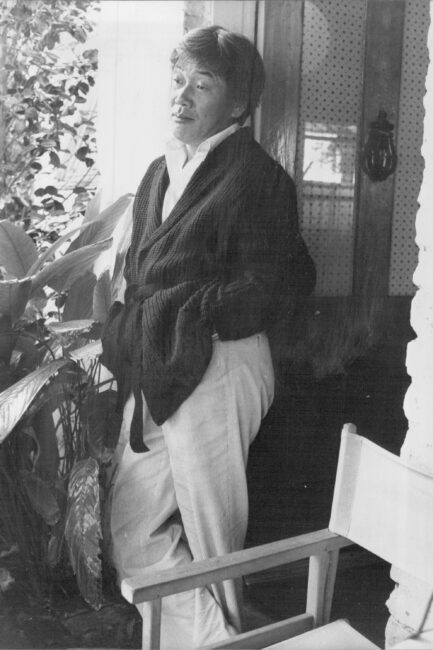
His work has been described as being characterised by integrity, innocence and authenticity.
그의 작품은 완결성, 순수성, 독창성으로 잘 알려져 있다.
AM
Theologian, missionary and author Reverend John Brown, Member of the Order of Australia, spent 12 years as a missionary in Korea, helping to establish theological education as well as improved farming practices. He remains a highly respected figure in Korea and still regularly visits and takes part in church discussions.
Reverend Brown has influenced several generations of Korean church leaders and has received honorary doctorates from two Korean universities. In recent years Reverend Brown has very successfully managed the complex task of overseeing the orphanage and welfare services which the Uniting Church in Australia supports in North Korea.
After graduating from Melbourne University and the Melbourne College of Divinity, Reverend Brown was ordained to the Ministry of the Presbyterian Church of Australia in 1958. Following ministries in Victoria, he served as a missionary in Korea from 1960 until 1972, teaching Hebrew and Biblical Studies in the Presbyterian Theological Seminary in Seoul, pastoring many village churches in South Korea, and serving in the administration of the Presbyterian Church of Korea.
신학자이자 선교사, 그리고 작가인 존 브라운 목사는 호주 훈장(Member of the Order of Australia) 수훈자로, 12년 동안 한국에서 선교활동을 하며 신학 교육 체계 수립과 농업 방식 개선에 기여했다. 한국에서 큰 존경을 받고 있으며 여전히 정기적으로 한국을 방문하고 교회 토론에 참여하고 있다.
브라운 목사는 수 세대에 걸쳐 한국 교회 지도자들에게 영향을 끼쳤고 두 개의 한국 대학에서 명예박사 학위를 받았다. 최근에는 호주연합교단(Uniting Church in Australia)의 지원을 받는 북한 고아원 및 복지 서비스를 총괄하는 복잡한 업무를 성공적으로 수행했다.
멜버른대학교(Melbourne University)와 멜버른신학교(Melbourne College of Divinity)를 졸업한 후 브라운 목사는 1958년 호주장로교회(Presbyterian Church of Australia)에서 목사 안수를 받았다. 빅토리아에서 목사로 사역한 후 1960년부터 1972년까지 한국에서 선교활동을 하며 서울에 위치한 한국장로회신학대학교에서 히브리어와 성서 연구를 가르치고 그 외 많은 지방 교회에서 설교하며 대한예수교장로회 운영도 도왔다.
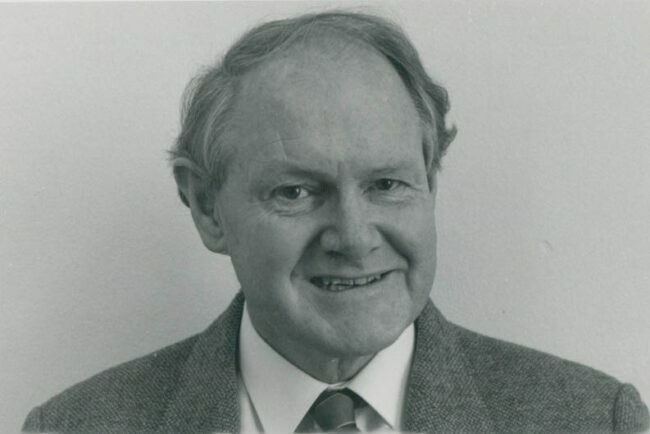
Returning to Australia in 1972, Reverend Brown became a senior church leader, taking a prominent role in the World Council of Churches and serving as National Secretary for the Mission of the Uniting Church of Australia. He became deeply involved in the reconciliation movement, serving as the Co-Chair of the National Sorry Day Committee from 1998 to 2005 and the Co-Chair of the Myall Creek Memorial Committee since 1999. He has written and published a number of books, notably on the church’s mission in Korea and in Indigenous Australia.
Reverend Brown was appointed a Member of the Order of Australia in 1993 and received a Centenary Medal in 2001 for services to reconciliation. In 2015 he was awarded an honorary Doctor of Arts by Charles Sturt University for his significant contribution to the public good, both nationally and internationally, and for his work in supporting the university’s Indigenous and Korean programs.
1972년에 호주로 돌아온 뒤 세계교회협의회(World Council of Churches)에서 핵심 보직을, 호주연합교단에서 총무직을 수행했다. 또한 1998년부터 2005년까지 호주 국가사과의날위원회(National Sorry Day Committee)의 공동위원장직을, 1999년 이후 마이올크릭원주민대학살추모위원회(Myall Creek Memorial Committee) 공동위원장직을 수행하며 호주 원주민 관련 국가화해운동에도 깊이 관여했다. 한국 교회의 사역 및 호주 원주민을 주제로 많은 책을 출간하기도 했다.
브라운 목사는 화해 운동 관련 공로를 인정받아 1993년 호주 훈장을, 2001년에는 100주년 메달을 수상했다. 2015년에는 국내외적으로 공익에 크게 기여하고 찰스스튜어트대학교(Charles Sturt University)의 원주민 및 한국 연구 프로그램을 지원한 공로를 인정받아 동 대학으로부터 명예박사 학위를 수여받았다.
Reverend Brown has influenced several generations of Korean church leaders and has received honorary doctorates from two Korean universities.
브라운 목사는 수 세대에 걸쳐 한국 교회 지도자들에게 영향을 끼쳤고 두 개의 한국 대학에서 명예박사 학위를 받았다.